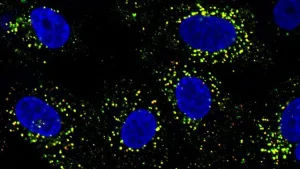Revolutionary Sustainable Method Transforms Waste Keratin into Valuable Resources
Imagine a world where waste from wool and feathers becomes a valuable resource. Thanks to a groundbreaking new method, this vision is moving closer to reality. Researchers have developed a sustainable approach to break down keratins, the resilient proteins found in abundance in leftover wool and feathers.
The Keratin Waste Problem
Textile and meat-processing industries generate staggering amounts of waste annually. Billions of tons of feathers, wool, and hair are produced, creating a significant disposal challenge. However, these materials are rich in keratin, a robust, fibrous protein with the potential for various applications.
The Innovative Solution
This new method offers a sustainable solution to process keratin waste and transform it into valuable products. Instead of contributing to environmental problems, this waste can be utilized as a resource. This is a win-win situation, addressing both waste management and resource creation.
Potential Applications of Processed Keratin
The processed keratin can be used in several fields, including:
- Agriculture: As a soil amendment or slow-release fertilizer.
- Cosmetics: As an ingredient in hair and skincare products.
- Biomedical Engineering: For tissue engineering and drug delivery systems.
Environmental and Economic Benefits
This innovation has profound environmental and economic benefits:
- Reduces waste and pollution from the textile and meat industries.
- Creates new revenue streams from waste materials.
- Promotes a circular economy by reusing resources.
- Offers sustainable alternatives to traditional materials.
Final Words
The development of this sustainable method to break down keratins represents a significant step forward in waste management and resource utilization. By transforming leftover wool and feathers into valuable products, this innovation offers environmental and economic advantages, paving the way for a more sustainable future.




+ There are no comments
Add yours